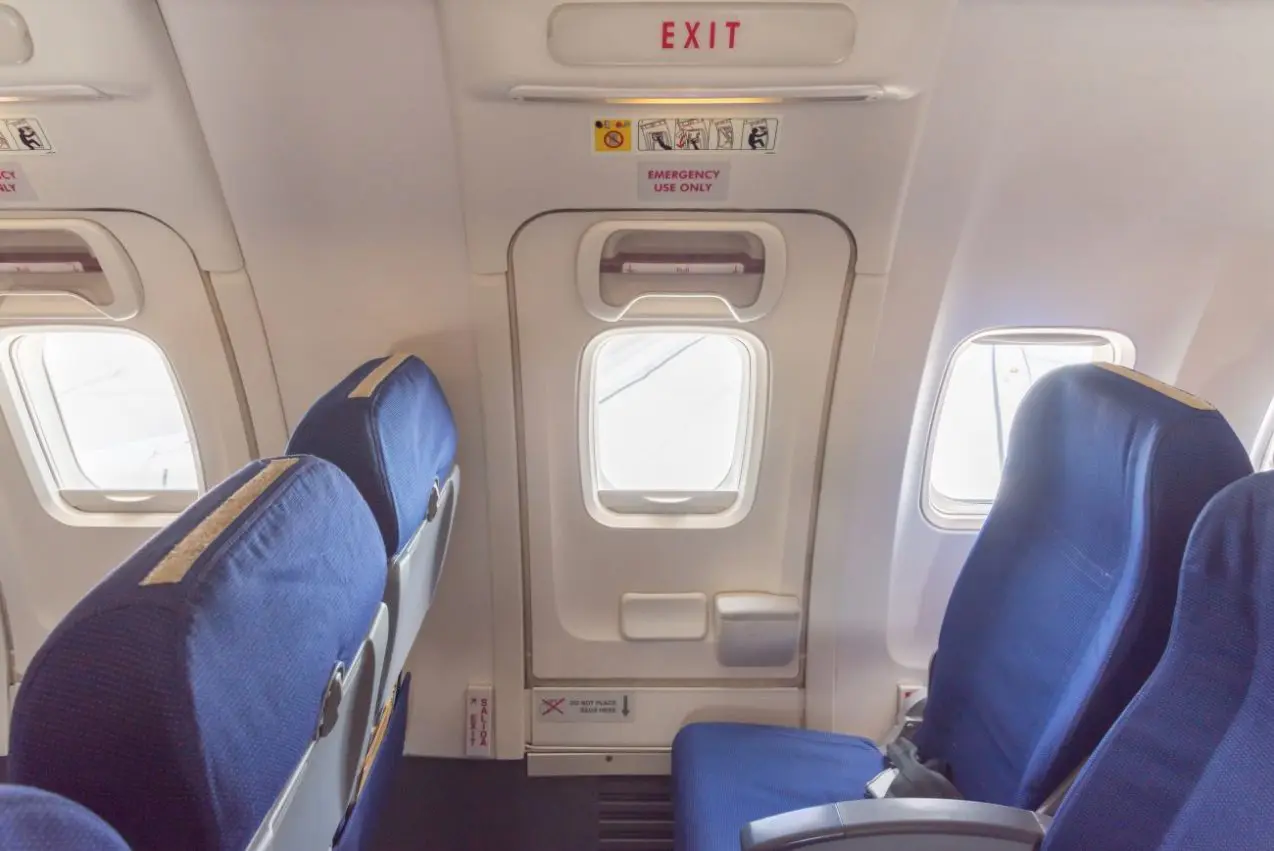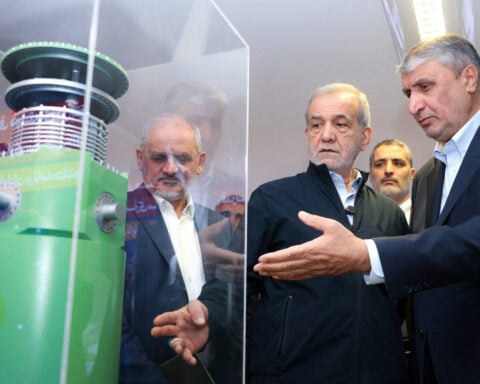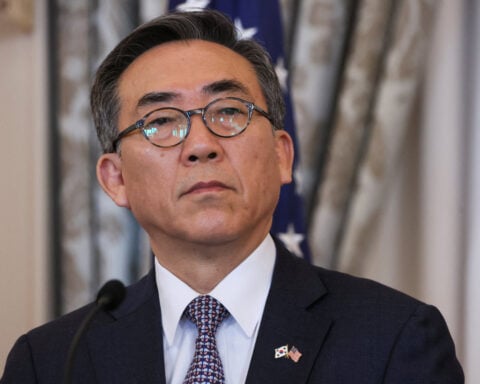A Southwest Airlines passenger who was reportedly experiencing a mental health crisis departed the plane last Sunday using the emergency exit at Louis Armstrong New Orleans International Airport. Staff members apprehended the 38-year-old guy after he jumped from the wing at about 8pm.
The shocking event happened while Flight 1525 waited at the gate, just before it was supposed to take off for Atlanta. A passenger "utilized an emergency exit door to exit a plane," according to the Jefferson Parish Sheriff's Office, which prompted airport police to hurry to the scene. The guy appeared confused and lost when he was discovered. It seemed like he wasn't really aware of what he was doing on the asphalt.
The subject was taken to a local hospital for a mental health examination by emergency medical professionals. He is still being closely monitored by medical professionals due to what appears to be a mental emergency, which might have caused his unpredictable conduct.
Southwest Airlines confirmed that no injuries occurred during the unexpected exit. The airline also praised its crews' swift response in securing the situation.
With the passenger receiving treatment, questions remain regarding how he accessed the emergency door so easily—and whether airlines need improved safeguards. Southwest policies require flight attendants to arm each door before departure. The FBI and National Transportation Safety Board often investigate such disruptive incidents.
Sunday's event caused only minimal disruption after the quick reaction by airport staff. The aircraft was swiftly replaced so passengers could proceed to their Atlanta destination before connecting to Baltimore. Still, the scary scene left travelers shaken according to some nearby witnesses.
The emergency exit door incident marks the latest airline disturbance involving emotional distress and mental illness. Carriers have reported surging cases as pandemics exacerbations strain mental health. Incidents can also spur calls for better crisis training and security protocols.
A June case saw an off-duty flight attendant subdued for opening a plane door prematurely in Chicago. In some instances, FBI evaluations have ensued along with federal charges. For now, Sunday's passenger seems more vulnerable victim than criminal culprit. Without all details, conclusions remain premature.
Managing psychiatric emergencies represents an increasing challenge for airlines. Studies indicate emotional support animals provide comfort for some vulnerable travelers. Other advocates urge more mental health resources for both crew and passengers. Destigmatization can also help those struggling disclose issues discreetly.
The FAA tallied over 300 disruptive airplane passenger cases by early 2022. Unruly behavior reports have climbed sharply since 2020 - often involving substance abuse and anger issues. In contrast, Sunday’s incident appears tied to underlying mental health triggers instead of defiance or intoxication.
Air travel increased anxiety even before the pandemic for the estimated one in five Americans facing mental illness. COVID-related stress has now exacerbated psychiatric disorders exponentially. Researchers continue working to understand coronavirus’ lasting neurological effects.
In that climate, customer altercations have stretched airlines thin; flight attendant unions cite unsafe conditions. Carriers pledge to keep supporting staff training while adding more behavioral health services. Traveler well-being remains the priority during incidents, airlines emphasize.
Though jarring to witness, Sunday’s emergency exit activation seems less aberrant act than desperate cry for help. As mental health screenings and support resources expand, such occurrences may gradually decline. But more openness and compassion surrounding psychological struggles is still needed.
Destigmatization campaigns emphasize that “turbulent flights begin in turbulent minds.” Just as with physical health, mental wellness should elicit no shame when illness strikes. Had Sunday's passenger received such care and understanding earlier, his breakdown might have been prevented.
This assumes the traveler even understood his own declining condition beforehand. Many with emerging psychiatric disorders fail to recognize gradual shifts in cognition or mood. Only clear communication from loved ones or doctors allows early intervention.
Airline policies must balance compassion for these travelers with safety for all. But heavy-handed restraint can worsen paranoia, aggression and noncompliance in psychiatric cases. Gentler crisis response models train staff to calmly halt self-harm while avoiding confrontation.
As Airport police deliver the passenger to doctors, criminal charges seem unlikely according to early reports. Officials praised Southwest's crew for swiftly securing the plane without injuries. The airline echoed relief that staff reacted decisively to protect travelers.
In coming days, investigators will likely review whether evacuation protocols were followed appropriately on all sides. But once again, a deeper discussion of travelers’ mental health needs seems most pressing.
Until those needs are addressed openly, such inflight incidents may continue as desperate cries for help. With compassion and care, airlines can convert more would-be tarmacs into safe landings. But it will require effort and understanding from all parties - companies, crews and customers alike - to ensure not one struggling soul falls through the cracks.

 Trump has begun another trade war. Here's a timeline of how we got here
Trump has begun another trade war. Here's a timeline of how we got here
 Canada's leader laments lost friendship with US in town that sheltered stranded Americans after 9/11
Canada's leader laments lost friendship with US in town that sheltered stranded Americans after 9/11
 Chinese EV giant BYD's fourth-quarter profit leaps 73%
Chinese EV giant BYD's fourth-quarter profit leaps 73%
 You're an American in another land? Prepare to talk about the why and how of Trump 2.0
You're an American in another land? Prepare to talk about the why and how of Trump 2.0
 Chalk talk: Star power, top teams and No. 5 seeds headline the women's March Madness Sweet 16
Chalk talk: Star power, top teams and No. 5 seeds headline the women's March Madness Sweet 16
 Purdue returns to Sweet 16 with 76-62 win over McNeese in March Madness
Purdue returns to Sweet 16 with 76-62 win over McNeese in March Madness








